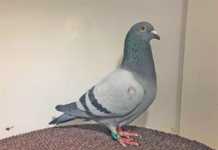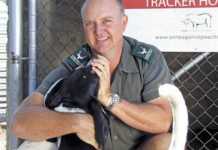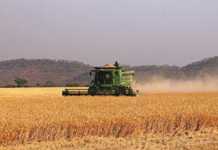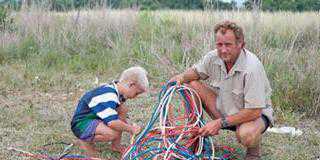Many of South Africa’s emerging and commercial farmers are near retirement age, if not older. This means food security is threatened, as many farms are losing full production potential. Making matters worse is the youth’s reluctance to get involved in the sector.Community projects are also affected. The Itumeleng Food Gardens in Mabopane, about 35km north of Pretoria, is a good example. While working as a maternity ward nurse at the Soshanguve clinic, Nomzi Mashiane started a food garden there.
“I saw too much malnourishment among the babies and their mothers,” she recalls. “We taught the mothers how to grow their own vegetables and we gave them some seeds to plant at home.”When she retired in 1995, Nomzi started a similar project in Mabopane. Her aim was to fight the poverty and unemployment in the area, and soon more than 100 elderly community members were growing food for their families. The project grew carrots, cabbage, spinach, beetroot, cauliflower and other vegetables.
They produced more than they needed and the surplus was sent to the Tshwane Fresh Produce Market, earning members some pocket money too.Initially, Nomzi approached unemployed women in the community, but soon men wanted to join the project. When they started out they had no support and had to use any means to save costs.
“We dug our gardens knee high, then threw organic material inside,” remembers Nomzi. “It was really tough. When we started digging our gardens, many asked us what we were doing. ‘Are you digging graves?’ they asked. And I said, yes, we’re digging graves to bury poverty.” Each member had a 10m x 30m plot. “We couldn’t grow a lot of vegetables because we could only water manually,” says Nomzi.
The next step funding
When Nomzi saw how dedicated the group was, she decided to take the next step and use the project to generate income for the participants. In 1996, with help from Frans Viljoen, an extension officer from the agriculture department in Rustenburg at the time, Nomzi applied for funding from the department.
In February 1997, their application was approved. “The department paid for the infrastructure and we provided labour,” says Nomzi. The members did everything, from digging and laying the pipes to putting up the four tanks that supplied the whole garden with water. The department also gave the project a pump to pump water from the dam they constructed up to the tanks.
When financial constraints saw the department unable to finish the pack-house it had started building, Nomzi asked the American embassy for funding. The embassy helped them finish the building and bought implements such as wheelbarrows, spades and garden forks.The members then decided to join forces. Instead of producing individually, they worked as one company, buying fertilisers and seed and hiring transport to the marketing points. After selling the produce in bulk, they shared the money equally. “We made a good income from what we produced,” says Nomzi.
Challenges for the project
But now production is dropping as many members are getting too old to work the land. Add to this increased input costs, and the project is in trouble.“We’re can’t hire transport to deliver our produce to the market,” says Nomzi. “It just isn’t worth it, given the little we produce.”The project only stays afloat by supplying local stores. Nomzi says they need young people to join the project so it can flourish again, but they’ve had no luck attracting them.
Maria Mthethwa, who joined the project in 1999, was tasked with recruiting younger members. But the few she managed to bring in didn’t last long. “Their main concern was when they’d start making money,” she says.These days youngsters are more interested in setting up car-washes and hair salons, says Nomzi, but their participation is desperately needed. “The only way South African agriculture can thrive is to get the youth involved,” she says.
Contact Nomzi Mashiane on 072 813 1010.













